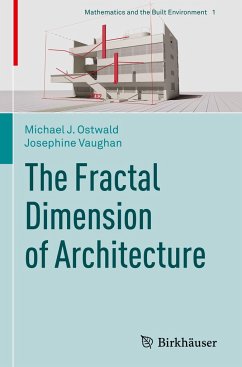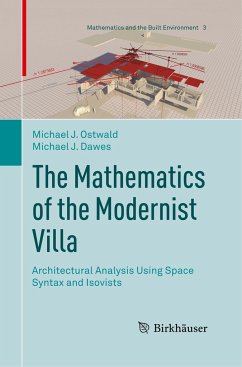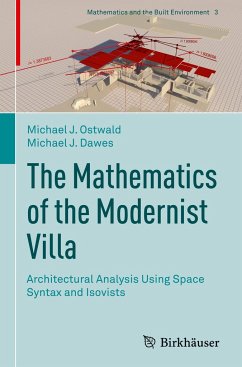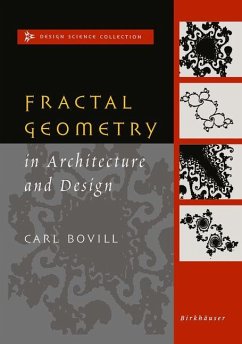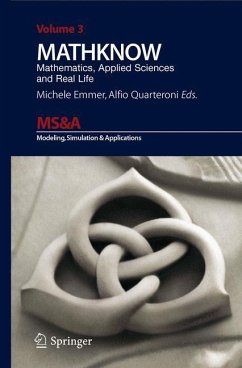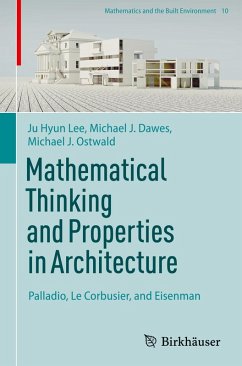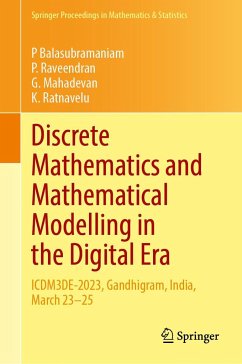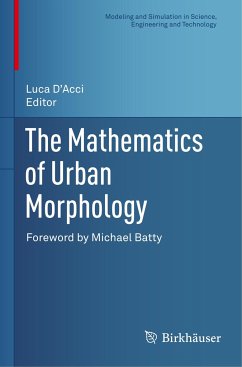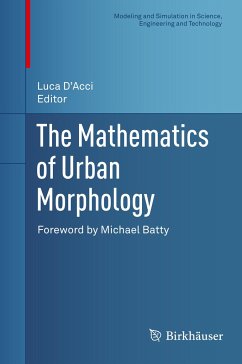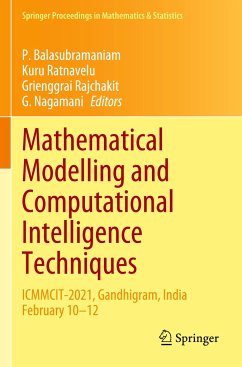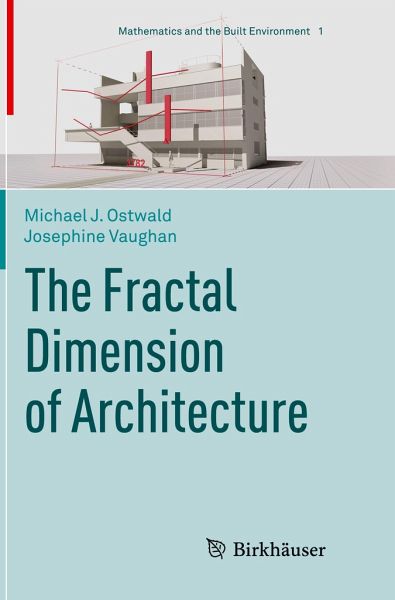
The Fractal Dimension of Architecture
Versandkostenfrei!
Versandfertig in 6-10 Tagen
98,99 €
inkl. MwSt.
Weitere Ausgaben:

PAYBACK Punkte
49 °P sammeln!
Fractal analysis is a method for measuring, analysing and comparing the formal or geometric properties of complex objects. In this book it is used to investigate eighty-five buildings that have been designed by some of the twentieth-century's most respected and celebrated architects. Including designs by Le Corbusier, Eileen Gray, Frank Lloyd Wright, Robert Venturi, Frank Gehry, Peter Eisenman, Richard Meier and Kazuyo Sejima amongst others, this book uses mathematics to analyse arguments and theories about some of the world's most famous designs.Starting with 625 reconstructed architectural p...
Fractal analysis is a method for measuring, analysing and comparing the formal or geometric properties of complex objects. In this book it is used to investigate eighty-five buildings that have been designed by some of the twentieth-century's most respected and celebrated architects. Including designs by Le Corbusier, Eileen Gray, Frank Lloyd Wright, Robert Venturi, Frank Gehry, Peter Eisenman, Richard Meier and Kazuyo Sejima amongst others, this book uses mathematics to analyse arguments and theories about some of the world's most famous designs.
Starting with 625 reconstructed architectural plans and elevations, and including more than 200 specially prepared views of famous buildings, this book presents the results of the largest mathematical study ever undertaken into architectural design and the largest single application of fractal analysis presented in any field. The data derived from this study is used to test three overarching hypotheses about social,stylistic and personal trends in design, along with five celebrated arguments about twentieth-century architecture. Through this process the book offers a unique mathematical insight into the history and theory of design.
Starting with 625 reconstructed architectural plans and elevations, and including more than 200 specially prepared views of famous buildings, this book presents the results of the largest mathematical study ever undertaken into architectural design and the largest single application of fractal analysis presented in any field. The data derived from this study is used to test three overarching hypotheses about social,stylistic and personal trends in design, along with five celebrated arguments about twentieth-century architecture. Through this process the book offers a unique mathematical insight into the history and theory of design.



